Past CNS Talks
| 4:00 PM
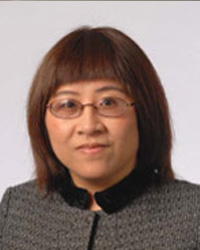
Engineering Modeling and Assessment for Patient-specific Cardiovascular Diseases toward Precise Medicine
Huidan (Whitney) Yu
Abstract: Patient-specific computational hemodynamics based on CT/MRI imaging has emerged as a powerful research tool to potentially aid noninvasive assessment for the severity of vascular diseases and necessity of vascular treatments in precise medicine. The attractive advantages include (1) the low cost of facility, personnel, and supplies; (2) the fully human subject protection; (3) the amenability to perform parametric analysis, and (4) the direct human subject results. Radiological scanning and animal model experimentation cannot compete with these advantages to achieve similar results with the same investment. We have recently developed a unique computational platform, named InVascular, for patient-specific and non-invasive evaluation of in-vivo hemodynamics such as velocity, pressure, flow rate, wall-shear stress, and so on. InVascular integrates the advanced modeling technique of CFD based on patient’s clinical CT/MRI imaging information with the emerging GPU (graphic processing unit) parallel computing technology, which enable fast quantification of 4-D hemodynamics and massive numerical analysis to assess (1) the severity of vascular abnormalities and (2) the surgical benefits. This talk will focus on several ongoing clinical projects to demonstrate how engineering modeling and analysis can contribute to precise medicine for cardiovascular diseases.
Bio: Dr. Huidan (Whitney) Yu is an Associate Professor in Mechanical Engineering Department of Indiana University-Purdue University Indianapolis (IUPUI). Prior to the affiliation with IUPUI, she successively completed two PhD degrees in Physics at Peking University in China and Aerospace Engineering at Texas A&M University in USA, followed by two postdoctoral research positions at Los Alamos National laboratory and the Johns Hopkins University. Dr. Yu’s research expertise is, in general, on CFD for thermal fluids modeling on mesoscopic (Boltzmann equation) level taking advantages of suitability for multiphase flow, ease for dealing with complicated geometry, and idealization for GPU (Graphic Processing Units) parallel computing. She has 20+ years of experience creating models and performing simulations for fluid/flow systems including multiphase flow and turbulence. She is familiar with programming on different operating systems and work stations such as windows, linux/unix, as well as a wide variety of scientific and commercial software for CFD. She has been regarded as an expert for parametric analysis of flow features, such as instability, nonlinearity, pulsivity etc., through CFD supporting experimental design and product advancement. Her research over the years has produced 70+ prestigious journal papers and 70+ invited/conference talks. At IUPUI, Dr. Yu has dedicated herself to develop reliable and applicable computational tools for image-based computation analysis of biomedical flows through close collaboration with clinicians. She is the inventor of a clinically practical software named InVascular for noninvasive assessment of hemodynamic abnormalities within clinical favorite time, aiming to aid clinical diagnosis and treatment making.
| 4:00 PM
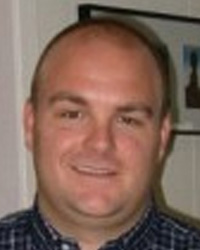
Open-source Visualization with Shiny: Extending the Impact of the Data Scientist
Kevin Purcell
Abstract: Open source platforms like the R statistical language provide today’s data analysts with a sophisticated set of tools that go from analysis to presentation without leaving the analytical environment. This means organizations can operate with greater efficiency and economy of resources, all the while ensuring continual input from the data scientist.
Bio: Kevin Purcell is the Chief Scientist at WildFig, a data science and analytics consultancy based in Harrisburg, Pennsylvania. Before joining WildFig Dr. Purcell’s held research appointments in the Sustainable Fisheries Branch of the National Oceanographic and Atmospheric Administration and the Nicholas School of the Environment at Duke University. Kevin’s research employs a variety of computational and statistical approaches to quantify the dynamics of disturbance on complex systems. Kevin holds postgraduate degrees in environmental and evolutionary biology and has published peer-reviewed papers and technical reports in various data-driven research disciplines. Dr. Purcell serves as a Corporate Faculty member in the Analytics Group at Harrisburg University where he teaches graduate courses in applied statistics and data visualization. Kevin currently leads WildFig’s first Applied Analytics Laboratory, a collaboration with Harrisburg University, that’s mission is to develop novel analytical approaches with commercial application and cultivate a new generation of data scientists. You can follow Kevin on Twitter at @kevin_purcell
| 4:00 PM
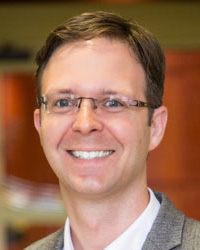
Visualization-driven insights in 3-D cancer simulation data
Paul Macklin
Abstract: Cancer is a complex system, where many cells exchange biochemical and biomechanical signals even as they grow, divide, die, move, and exchange mechanical forces. Moreover, cells can change their phenotype (key behavioral parameters and state) in response to the tissue microenvironment, even while they remodel this environment. Each cell’s behavior is driven by the complex interplay between its tissue conditions and multi-layer networks at the genomic, proteomic, metabolomics, and other scales. Cancer treatments are applied within this complex, multiscale system. While successful treatments can control or eliminate the tumors, poor outcomes including resistance, increased invasion, side toxicity, and therapeutic failure emerge from this complex system. 3-D simulation systems such as PhysiCell (physics-based multicellular simulator) can assist scientists in understanding complex multicellular cancer systems by simulating many interacting cell agents and the chemical microenvironment. However, they generate high-dimensional data that can be difficult to visualize and understand. In this talk, we demonstrate some simulated 2-D and 3-D cancer systems, show examples of insights gained from visualizing spatiotemporal model data, and explore the role for applying image analysis techniques to simulated microscopy data. We will discuss the potential for open data standards to facilitate better visualization of 3-D multiscale biological data. Lastly, we will discuss pressing needs for systematic and quantitative analysis of 3-D spatial biological data.
Bio: Paul Macklin is a mathematician and an Associate Professor of Intelligent Systems Engineering at Indiana University. He runs a Math Cancer Lab to develop data-driven computational systems that can help engineer the behavior of multicellular systems, especially in cancer and tissue engineering.
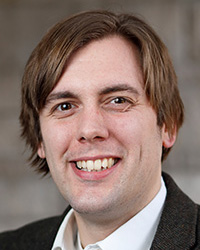
Graphical User Interface for Legislative Data - GUILD
Matthew Hutchinson
Abstract: GUILD is a database designed to enhance the utility of the Indiana General Assembly (IGA) data made public by the state’s Legislative Services Agency (LSA). GUILD’s enhancements will enable users to rapidly query and study the network structures that reflect how public policy is made in Indiana, and ultimately in other states in the Midwest and beyond. To our knowledge, this is a first-of-its-kind resource, unique in its representation of the legislative process at a highly granular level and in a graphical (network) format.
Bio: Matt Hutchinson is IUNI’s Data Manager. In this role he is responsible for maintaining and managing access to IUNI’s various datasets as well as facilitating analysis and reporting for IUNI’s affiliated faculty and research groups. Matt has an MPA in Policy Analysis from Indiana University’s School of Public and Environmental Affairs and joins IUNI after a number of years working for the Indiana State Government. His professional experience has focused on econometric forecasting and microsimulation modelling of the state tax code, particularly in the fields of Sales and Gaming taxation. Matt has contributed to the implementation of data-driven decision-making and best practices in two separate state agencies including the use of economic and demographic data to allocate public funds and develop the state budget.
| 4:00 PM

Engineers and Scientists as Actors? Situational Role Playing - How to Clearly Articulate Good Ideas
Jonathan Michaelsen
Abstract: We all take on different roles depending on our relationships and the circumstances. A vital part of being successful in a work environment is presenting ideas in a clear, convincing fashion, as well as being able to analyze situations effectively. By practicing and employing performance techniques and role playing, Engineers and Scientists can be better communicators and more effectively present their ideas and subject matter.
Bio: Jonathan R. Michaelsen is chair of the Department of Theatre, Drama, and Contemporary Dance at Indiana University. He is also producing artistic director of both the Indiana Festival Theatre and Premiere Musicals: Developing New Works at Indiana University. Professor Michaelsen has directed and acted in numerous professional and collegiate productions, including King Lear, Macbeth, Merchant of Venice, Sweeney Todd, Angels in America and Uncle Vanya. At Indiana University Michaelsen has directed A Clean House, The Scarlet Letter, Arcadia, A Funny Thing Happened on the Way to the Forum, and the world premiere of Reel, which was selected for regional honors by the American College Theatre Festival. He has had four productions selected for presentation at regional American College Theatre Festivals, with the world premiere production of Southern Girls receiving national honors.
| 4:00 PM
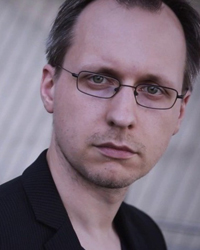
Creating animated video abstracts with Cinector Software
Thomas Schmieder
Abstract: In today’s information overload and the massive number of new papers and research proposals being written every day, researchers and lecturers need a way to quickly convey the core aspects of their research. In this regard, videos have become an effective method to distill knowledge into an understandable format which is able to capture the audience’s attention. That is why Cinector software aims to enable these users to create professional explainer movie clips and animated abstracts, without the need to hire external agencies or to learn complex filmmaking techniques. Users can even set their own TV studio using their laptop and webcam utilizing the software’s real-time green-screen compositing in a 3D environment. This talk will introduce Cinector STAGE 2018 and practical ways to quickly distill complex data into understandable explainer clips.
Bio: In his work as researcher and entrepreneur, Thomas Schmieder combines his experience as an actor, who starred in major European and German film productions, with the new possibilities found in the field of video game production and virtual worlds. As co-founder of Cinector GmbH, he developed the vision of combining game and animation technologies in order to make creating animation clips and 3D visualizations playfully easy - and to lift storytelling into new dimensions.
| 4:00 PM | Zoom Meeting

Abstract: This talk will present an overview of Processing, and how its dynamic graphics capabilities can be used to create and deploy data visualizations. Topics covered will be data parsing, static and dynamic visualizations, basic scripting using the Java-style Processing language, and interactivity tools for end users.
This presentation can be watched through: Zoom Link
Bio: Andreas Bueckle is a PhD student in Information Science at Indiana University as well as a videographer and photographer. His academic interests revolve around data visualization literacy, more specifically interactive and augmented reality visualizations of Internet-of-Things and smart ecosystems. He is a teacher of the Information Visualization MOOC (http://ivmooc.cns.iu.edu). As a professional videographer and photographer, he has been hired by various clients since 2008. He has worked on video and photo projects on five continents, with a focus on documentary as well as nature, social issues, and nature photography. Work samples are at www.andreas-bueckle.com.
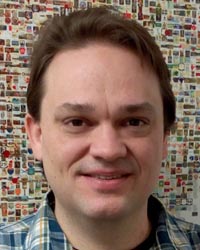
Visualization Projects with Scrum and Other Cool Stuff
Bruce Herr
Abstract: Bruce will present the basics of Scrum and how to apply it to visualization projects, small and large. He will also go into Github usage and show past visualizations.
Bio: Bruce Herr is the Senior System Architect and Project Manager at CNS. He rejoined after working for nearly 10 years in the software industry. Bruce has extensive knowledge of professional software development and managing teams, and is a valuable asset to the center.
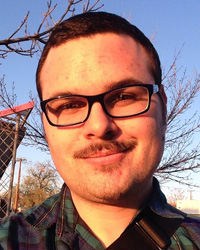
Graph Visualization and Exploration with Gephi
Michael Ginda
Abstract: Gephi is a cross-platform, open-source visualization tool packed with useful features and functionalities. Described as, "like Photoshop™ but for graph data", its large selection of tools allow users to generate and manipulate visualizations at will. Gephi's large and supportive community, combined with its sophistication and capability, make it an essential tool for researchers and analysts looking to visualize information from complex datasets.
Files from this presentation are available for download here.
Bio: Michael Ginda, the Senior Research Analyst at CNS, has extensive experience in using visualizations and visualization tools to conduct research. He also works as an assistant instructor for the Information Visualization MOOC, and creates documentation for the Science of Science Tool.
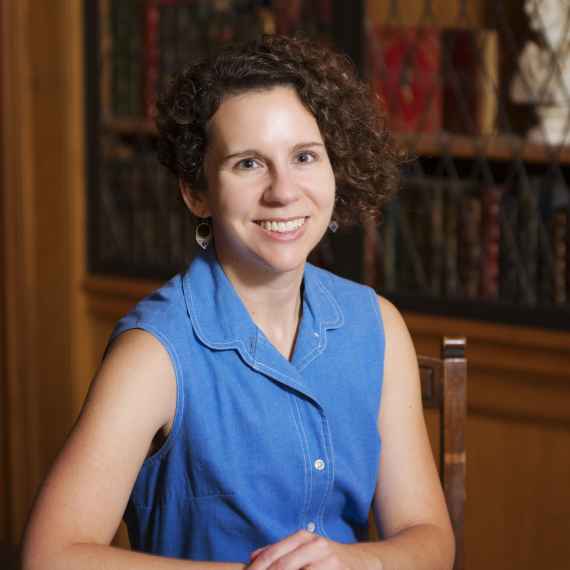
Lilly Library Tour: The History of Information Visualization from a Cartographic Perspective
Isabel Planton
Abstract: The Lilly Library houses rare books, manuscripts, and special collections for Indiana University. It serves as a resource for scholars throughout the world and contains approximately 400,000 rare books and 6.5 million manuscripts. This tour will cover sixteen different works depicting cartographic works and visualizations, and will provide students with information on the history of information visualization.
Bio: As Public Services Librarian in the Lilly Library, Isabel Planton coordinates reference services for the Lilly Library, including email, in-person, and telephone reference, as well as serving as Reading Room Coordinator and supervising student employees. She also provides special collections instruction to diverse audiences, mainly undergraduate and graduate students.

Visualizing Science Using VOSviewer
Ludo Waltman
Abstract: The amount of scientific information that is available nowadays is massive. Several millions of new scientific articles appear each year, creating an overwhelming amount of information even in relatively small scientific domains. Bibliometric visualizations, based on bibliographic meta data of scientific articles, offer an important tool to provide insight into this information, showing for instance how scientific fields are organized into subfields and how fields and subfields evolve over time. In my talk, I will present the freely available VOSviewer software tool (www.vosviewer.com), of which I am one of the developers. VOSviewer is a widely used tool for creating and exploring bibliometric visualizations, for instance visualizations of co-authorship and citation networks, but also of the textual content of scientific articles. After giving an introduction into VOSviewer, I will discuss a number of lessons learned from the development of the tool. In particular, I will focus on the different ways in which the tool is used, and I will consider a number of fundamental challenges in creating visualizations that are truly helpful in getting a deeper understanding of science.
Bio: Ludo Waltman is senior researcher at the Centre for Science and Technology Studies (CWTS) at Leiden University in the Netherlands. At CWTS, he leads the Quantitative Science Studies research group. Ludo’s research interests focus on scientometrics and its use in research management and research evaluation. Ludo is particularly interested in scientometric indicators and scientometric visualizations. He is co-developer of VOSviewer (www.vosviewer.com) and CitNetExplorer (www.citnetexplorer.nl), two freely available software tools for scientometric visualization. Ludo serves as Editor-in-Chief of Journal of Informetrics, one of the leading journals in the field of scientometrics.
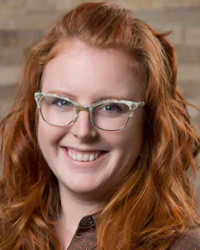
Visual/Data Literacy Related to Maps
Theresa Quill
Abstract: The ways in which we view and use maps has changed over the centuries, but cartography continues to influence the way we think about the world. This talk discusses a brief history of cartography as a visual tradition, and the importance of spatial literacy and learning.
Bio: Since 2012, Theresa Quill has provided expert assistance with maps and GIS (geographic information systems) data and resources as a member of the Social Sciences and Government Information, Maps and Microform Services departments. Her professional interests are focused on spatial humanities, open source GIS, and critical cartography. Previous to joining the Libraries, Theresa served as a Peace Corps volunteer in Bulgaria, and has some fluency in that language. She earned her Master of Library Science degree from Indiana University Bloomington and holds a Bachelor of Arts in International Affairs from the University of Georgia.
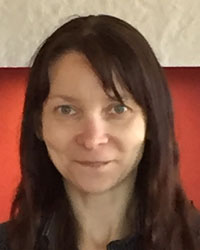
Abstract: Efficient workflow is an important skill for project planning, management, and reporting. This one hour workshop will focus on concrete steps to improve project workflow, starting from the project set-up to publication.
1. Project set-up
2. Project planning (DiagrammeR)
3. Packages selection (Crane and Github)
4. Dynamic reporting (RMarkdown)
5. Dynamic visualization (Plotly)
6. Publishing (RPubs, HTML, PDF)
This workshop is open to anyone interested in learning R, at all levels.
Join our mailing list for future Visual Insights Talks.
Bio: Olga holds a dual PhD in Computational Linguistics and French Linguistics from Indiana University. Her passion for natural languages led her to the field of Natural Language Processing. Text analytics and visualization became an integral part of my research that ranges from digital corpora, NLP methods, web reactive framework, and design of analytical tools.





